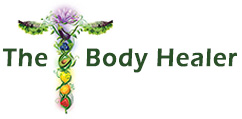How We Become Overly Acidic
Addressing any one of the following measures alone will not re-balance the body, but each makes a significant impact. As you address each of these areas, you will significantly increase your chances of a longer, healthier life.

An Acidic Diet
Diet has the single greatest impact on the pH balance of the body. An alkaline diet oxygenates the human blood and tissue, and well-oxygenated blood accelerates the repair and regeneration of tissues throughout our body. This is the main principle behind acupuncture, which stimulates the flow of blood and oxygen in areas of the body where it may be stagnant. An acid/alkaline balance is crucial for the oxygenation of our body on a cellular level.
How acupuncture stimulates oxygen flow...
Research has shown us that the highly refined Western diet is very acidic to the body and has the potential to influence many aspects of our health. An acidic diet leads to poor quality tissue, which in turn leads to poor health, and the development of chronic health conditions.
Acidic diets:
- Deplete our enzyme supply, which leads to nutrients in the food not being properly digested and assimilated.
- Cause the body to leach alkaline minerals (such as calcium) from our bones, teeth, and tissues in a struggle to maintain the blood pH at 7.4.
- Cause the body to store uric acid in the form of uric crystals, depositing them into body tissue and joints, causing pain.
- Reduce oxygen content in body tissue, which negatively impacts the body's ability to repair and maintain itself.
The typical standard American diet is not only devoid of most nutrients, but is also highly processed, chemicalized, irradiated, microwaved, genetically modified, filled with trace amounts of pesticides, high in factory-farmed animal products, and low in fresh whole foods. This all translates to an essentially acidic diet. Most prescription drugs, synthetic supplements, and artificial sweeteners are also acid-forming.
- The standard American diet: Acidic & unhealthy
- The Dirty Dozen: What they are & why you should avoid them
As our pH becomes more imbalanced, signs of acidity include bad breath, foul-smelling stools, water retention, gastrointestinal issues (constipation, diarrhea, acid reflux, IBS), rheumatoid arthritis, and other bone-related conditions.
The state of your body's health condition is relative to the foods you eat. Acidic diets will eventually lead to a condition called low chronic acidosis. Conversely, eating alkaline-forming foods helps reduce the destructive effects of acidosis.
Acid foods vs. alkaline foods...
Acidity & Stress
It is easy to severely underestimate the power of stress to do very serious damage to our health. Severe stress destroys the resiliency of the immune system and can be more traumatic to the body than a heart attack. Stressful situations, anxiety, worry, and high-stress work environments all increase the acidity of the body. You can have the healthiest diet in the world, but if you do not manage your stress, then you set the stage for serious health problems.
Acidity & Aging
Even with a healthy diet, our bodies naturally become more acidic with age. With aging comes a loss of lean tissue mass, bone, and muscle. Kidney function also declines, with most of the decline occurring after age 50. Increased age is also associated with an increase in acidosis, because the systems that rid the body of excess acidity simply don not work as efficiently. But we make the situation worse with acidic diets, which causes us to lose greater amounts of muscle mass and bone calcium earlier than we should. The result is that our body ages prematurely.
There are many long-lived cultures that reach centurion age with little to no chronic disease, yet here in the western world on our predominantly acidic diets, we have come to associate ill health as a by-product of aging. Osteoporosis and muscle wasting have now become accepted consequences of getting old, but our diet can play a role in preventing this. The more alkalizing the diet, the more we can not only offset the decline of our health, but also prevent age-related diseases.
RELATED ARTICLES
- Learn more about the acid/alkaline balance
- How we become overly acidic
- Health consequences of an acidic diet
- Acid vs. alkaline foods
- Acid/alkaline balance & sports performance
- Learn more about acidosis & alkalosis
- The SAD Standard American Diet
- The Dirty Dozen - what they are & how to avoid them
- Get off the diet merry-go-round
- Is your diet healthy?
- How we get sick - how we heal



